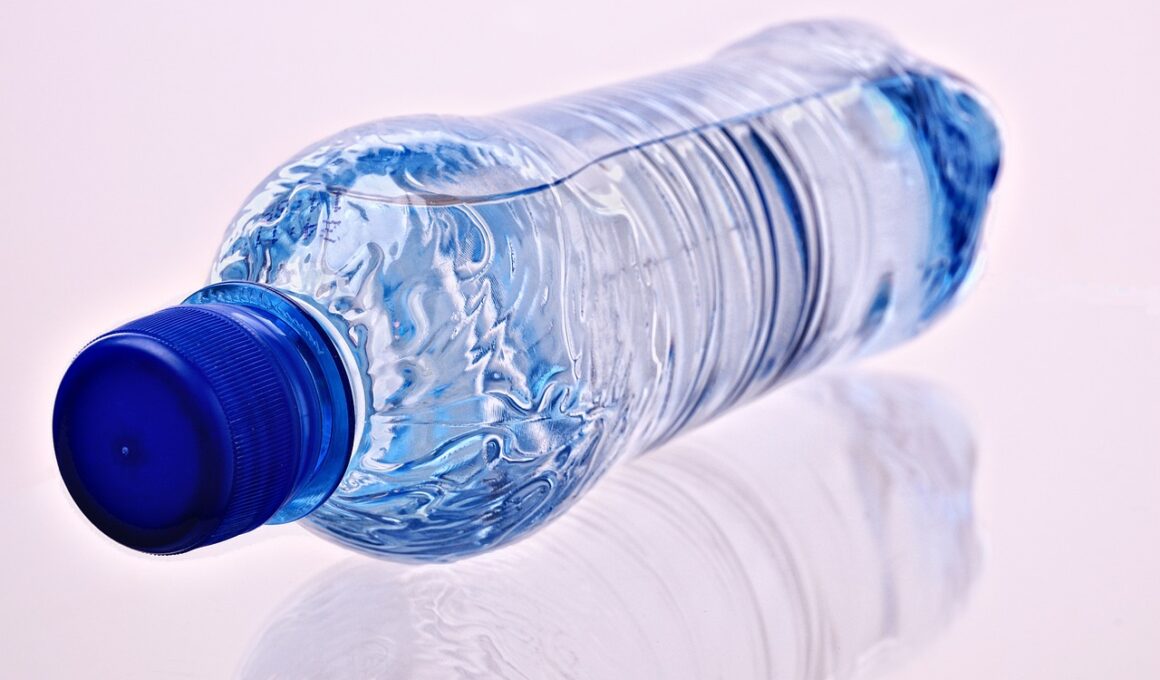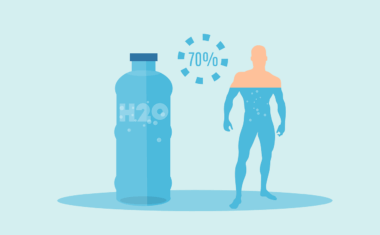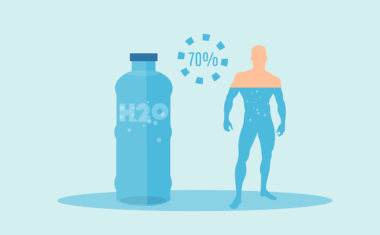Hydration Myths in Sports: What Athletes Should Know
Many athletes have misconceptions about hydration that can negatively affect their performance and health. For instance, the belief that drinking excessively amounts of water alone is sufficient is misleading. In reality, athletes need to maintain a balance between water and electrolytes. Dehydration can lead to decreased performance, fatigue, cramps, and even serious health issues. In many cases, athletes will rely on their thirst signals to guide them on hydration. However, this can often fail to account for how much fluid is truly needed while engaging in intense physical activity. Furthermore, it is important to understand how factors like climate, intensity of exercise, and duration play significant roles in determining hydration needs. Athletes who frequently compete or train can easily misjudge their levels of hydration based on these factors. Thus, education on proper hydration practices is essential for optimal performance. Athletes must recognize that water isn’t always alone the answer, and that drinks containing electrolytes may sometimes be necessary to offset losses that occur through sweat. Understanding these myths helps prevent misconceptions that can hinder an athlete’s success.
Common Hydration Myths
Sports hydration is surrounded by myths that can mislead unsuspecting athletes into detrimental practices. A prevalent myth is the belief that all sports drinks are beneficial, which isn’t accurate. While some drinks help replenish lost electrolytes, many contain high sugar levels. Excess sugar can contribute to energy crashes. Additionally, some athletes think they do not need to hydrate before exercising. However, beginning an event dehydrated sets a bad precedent. Adequate hydration before any physical activity is crucial because it prevents fatigue and promotes endurance. Another common myth is associated with the idea that thirst is a reliable indicator of hydration levels. Thirst is not a sustainable guide since athletes can start feeling thirsty only after already losing significant hydration. Furthermore, some believe that alcohol or caffeine-containing drinks provide hydration, yet both substances can lead to further dehydration. Thus, sticking to water and electrolyte-rich drinks is encouraged. Understanding these myths can lead to healthier habits, allowing athletes to make informed hydration choices. Ultimately, this ensures they maximize their performance capabilities during training and competition.
Another myth is that consuming large quantities of water at once is more effective than steady hydration. This is misleading since the human body works best when fluids are consumed gradually over time. Chugging excessive amounts can overwhelm kidneys, which can lead to flushing out essential minerals and electrolytes necessary for peak performance. It’s much more effective for athletes to take regular small sips of water than to drink excessively at intervals. Moreover, many mistakenly believe that hydration needs decrease during cooler weather. On the contrary, dehydration can still occur in cooler environments, especially when sweating is involved. Athletes must recognize their body’s fluid requirements based on physical exertion rather than external temperatures. Additionally, it is vital to note that not all hydration should come from water. Foods with high water content contribute significantly to overall hydration levels, such as fruits and vegetables. Incorporating these foods into an athlete’s diet can enhance hydration. Educating oneself about the need for a combination of water, electrolytes, and food further helps athletes enhance their hydration strategy for improved performance.
Benefits of Proper Hydration
The advantages of proper hydration cannot be overstated, especially for athletes. Hydration impacts muscle function, as sufficient water reduces the risk of muscle cramps and strains. Being adequately hydrated ensures that muscles can operate efficiently, which is essential for performance in sports. Furthermore, hydration plays a crucial role in regulating body temperature, particularly during intense exercise. When the body is hydrated, it’s better equipped to manage heat, helping athletes maintain stamina through workouts and competitions. Additionally, hydration increases both cognitive function and focus, which are keys to peak performance. Athletes often overlook mental processes, yet hydration can directly affect concentration levels and reaction times. Consequently, making hydration a priority should be part of any athlete’s regimen. Staying hydrated also contributes to faster recovery post-exercise, lessening the duration and intensity of delayed onset muscle soreness (DOMS). Thus, proper hydration allows athletes to train more effectively and recover more efficiently eventually. Overall, fostering sound hydration practices can lead to a significant enhancement in both training results and competitive outcomes.
Recommended Hydration Practices
To refine hydration strategies, athletes should consider their individual needs combined with the nature of their sporting activities. A good starting point is to establish a consistent water intake routine, concentrating both on pre, during, and post-exercise hydration. Athletes engaged in high-intensity training should specifically drink water before the start, but they might also need to incorporate electrolyte drinks during extended exertion. For many athletes, maintaining a hydration journal can provide insight on fluid intake versus performance levels in training sessions. This approach helps them identify optimal hydration practices. Another practice involves assessing urine color; a light yellow indicates proper hydration, while darker shades suggest a need for more fluids. Training sessions in varying conditions like heat or humidity may demand adjustments in hydration strategies based on sweat loss. Consuming fluid-dense foods as part of a diet helps maintain sufficient hydration. Remaining diligent regarding hydration before, during, and after training can lead to better results. These practices lay the foundation for long-term improvements in performance and recovery.
Coaches and sports teams play a critical role in promoting proper hydration among athletes. It is essential for coaches to emphasize the importance of hydration and its associated health benefits. They should educate athletes about effective hydration schedules while considering unique sports demands. Additionally, making hydration resources readily available aids in reminding athletes to stay hydrated. Encouraging regular water breaks during training and games can also help athletes develop healthy fluid habits. Social support systems contribute significantly to athletes’ well-being, including hydration awareness. Team culture surrounding hydration can significantly influence individual practices, promoting accountability and consistency. Furthermore, using technology such as hydration apps can help monitor fluid intake, making it easier for athletes to track their hydration levels. Screen alerts can prompt athletes to rehydrate. Overall, integrating hydration discussions into team meetings fosters a shared responsibility for well-being. This proactive approach empowers athletes to make informed decisions regarding hydration. In sum, building a team mindset around effective hydration practices can lead to improved individual and collective performance outcomes.
Despite the growing knowledge around hydration, athletes continue to face challenges in combating myths. Social media often perpetuates misleading hydration practices that can hinder athletic performance. Using platforms to spread accurate information can counteract such myths effectively. Engaging with professionals such as nutritionists or dietitians can further clarify hydration misconceptions and provide tailored guidance. They can create customized hydration plans that suit individual athletes’ training and performance schedules. Additionally, encouraging open discussions about hydration among peers allows athletes to share insights and strategies, leading to collective knowledge enhancement. Athletes should remain critical of the information they receive online, evaluating sources before adopting new hydration strategies. Education and credibility in sources are essential in fostering effective hydration practices. Athletes who prioritize reliable knowledge reduce their chances of falling prey to fraudulent claims. Engaging in workshops or webinars that focus on hydration can enhance athletes’ understanding. Ultimately, a well-informed athlete better prepares themselves for success by implementing scientifically backed hydration methods, thereby improving performance, endurance, and overall health.
In conclusion, addressing hydration myths is crucial for athletic performance and health. Myths about hydration can lead to poor practices that are damaging for athletes. Learning the truth about hydration empowers athletes to make informed choices regarding their fluid intake. Focusing on balanced hydration strategies—which includes electrolytes, gradual fluid consumption, and hydrating foods—promotes better performance outcomes. Athletes must also educate themselves about their unique hydration needs based on personal factors and sport-specific demands. Additionally, involvement and support from coaches and teams create an environment ripe for healthy hydration habits. It’s essential to create a culture that prioritizes hydration to ensure effectiveness. By addressing misinformation and cultivating proper hydration, athletes significantly reduce the risk of dehydration. The ultimate goal is to enhance their training and performance while maintaining good health. This knowledge helps athletes avoid dehydration’s pitfalls while fostering resilience and stamina. Ultimately, success in sports relies on comprehensive strategies, including effective hydration practices. Athletes who focus on proper hydration are better equipped to meet their performance goals in competitive environments. By implementing correct hydration protocols based on factual information, athletes can elevate their performance levels and achieve greater success.





